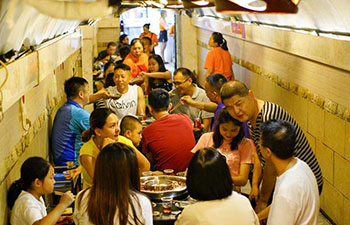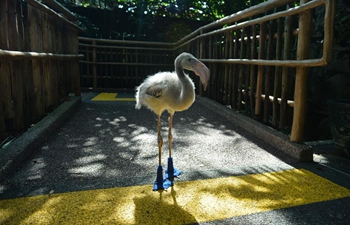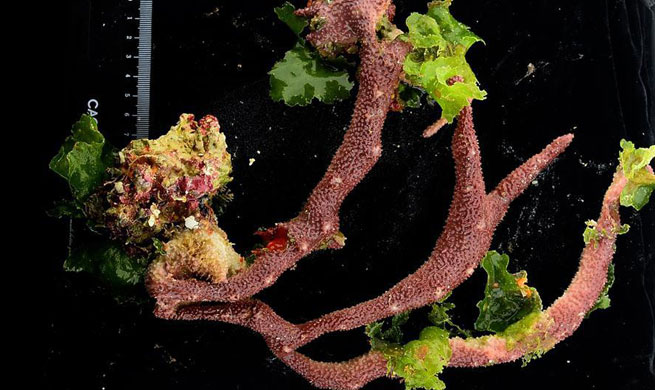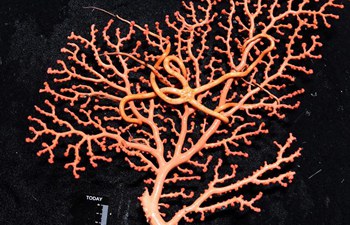DAMASCUS, Sept. 1 (Xinhua) -- Unlike previous years of Eid al-Adha, when people's talk in the capital Damascus was about the war and how to cheat death, this year Damascenes are worrying over the high prices and how to make ends meet.
The people's shift of priority this year is attributed to the relative calm of situation, with the sweeping progress of the Syrian army on the ground and the internationally-backed de-escalation zones deal.
Now, the Syrian army is fighting the Islamic State (IS) militants in the remote desert area in the eastern part of Syria, with key Syrian cities in securer and better conditions than they were last year.
The IS sway is shrinking as a result of the military operations backed by Hezbollah and the Russian air force, and the internationally-backed de-escalation zone's deal has put a leash on most of the other rebel groups, who are backed by regional powers, hoping to have a political status in the negotiations.
In the old quarter of Damascus on Friday, butchers prepare flocks of sheep for people to buy on the first day of Eid al-Adha, or the Feast of the Sacrifice, one of the most important feasts on the Muslim calendar. It is celebrated around the Muslim world with the slaughtering of a camel, cow or sheep. Meat is eaten and distributed to the poor.
However, more onlookers were gathering near the butcher shops than actual buyers and their muttering was about the high prices of sheep.
"The war has been dragging on for long, and we feel a sense of security this year, this is why we are now more concerned about the prices and livelihood because the battles are taking place very far from here," Maher, a Damascus resident, told Xinhua.
In pre-war times, each family used to buy one sheep, but after the war heavily hit the economy, it has become almost impossible for the ordinary person to buy a sheep, whose price has gone up almost fourfold.
Still, the tough economic situation couldn't stop the people from performing this ritual in Eid al-Adha, but now about three families share one sheep to distribute its meat to the less fortunate people.
"Now every three families are buying one sheep due to the situation in the country and may God help us. The price of one kg of meat was sold at 600 Syrian pounds before the war, now it is sold at 2,200 Syrian pounds," Samer, a butcher, said.
After six years of war in Syria, the country's economy has become crippled with the wide-ranging U.S. and European sanctions against Bashar al-Assad's government.
The total economic losses so far are calculated at about 226 billion U.S. dollars, "about four times the Syrian GDP in 2010," according to estimates published by the World Bank last month.
The effects will be felt for decades, as it is estimated that it would take 10 to 15 years for Syria's per capita GDP to return to pre-war levels.
The government has recently been focusing on improving the economic situation, with officials stressing that the recovery of the economy has started.
President Bashar al-Assad recently said that the economic situation has started to recover slowly.
The government hosted the decades-old Damascus trade fair for the first time last month since 2011.
The aim of the fair was to send a message that the time for the economic investment in Syria has started, with the main focus on the reconstruction process.
Prime Minister Imad Khamis said recently that his government had already started signing contracts for the reconstruction process in the war-torn country, where entire cities are in ruins.
Experts believe that when the situation in the country becomes even better and the actual reconstruction begins, Syria will witness an economic boost with foreign companies investing in the rebuilding of Syria.

















